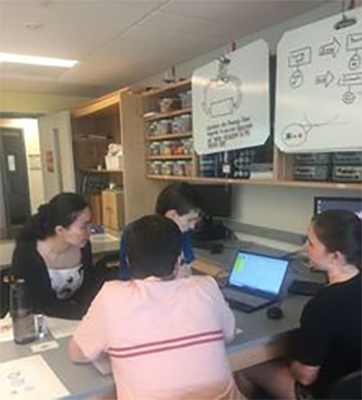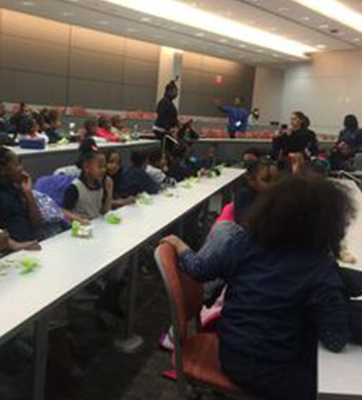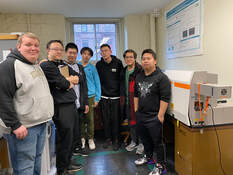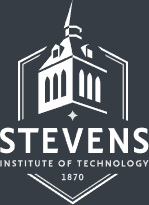TEACHING / OUTREACH
STEM Outreach

High School Students Introduced to Materials Design
24 Students from STEM Hub divided into 8 groups were introduced to engineering materials design, and performed ‘role playing’ activity to make a better engineering company by considering efficiency, toxicity, availability, weight, and cost. The project began with the description of the ‘company’ which we are designing for, and the knowledge of material science and energy were provided, followed by the ‘role playing’ activity with students working in groups. Handout and excel forms for materials design were provided to students, to optimize the efficiency, toxicity, availability, weight, and cost. After the first round (for toxicity and efficiency — without availability for this round to keep it simpler), everyone reported their results to the teacher. Then the teacher commented on what is needed based on the added weight factor, providing the transition, and we then went to the next round. After that round, the students presented their results to the teacher who commented based on cost. That finally led to round 3 with cost added. After that, the students provided their final result to the teacher. We named the winner, based on an equation that we have put together.
Elementary School Students Invited to Fun Experiments Through “Science is Elementary”
Kindergarten to 8th grade students from Westminster Community Charter School participated in hands on STEM activities. Activities include: water music (teach students about how sound is produced and how the tone changes when they hit a glass as they fill it with water), making bubbles (mixing different solutions of mixtures with water, glycerin, and soap to see how it affects the bubbles they make, and making a paper clip float in a cup of water as an additive so they can better understand the surface tension on the bubbles), eggs under pressure (shooting eggs in and out of bottles using differences in air pressure), optical fun (having fun refracting light and using lasers), bridge construction (modeling bridges using Knex sets). Each activity takes 30 minutes.

Host “Walk With U Summer Program” Seminar at Center for All Abilities
I hosted a seminar to introduce fun science to the students with developmental delays at Center for All Abilities.
K-12 Students Engaged to “Ask a Stevens Prof” Webinar Series
With schools shut down due to the coronavirus pandemic, Stevens professors are reaching out to local K-12 students using virtual learning resources through “Ask a Stevens Prof”. Through a series of interactive webinars, we hope to engage students in STEM and share exciting research going on at Stevens campus.
Undergraduate Students Involved in Summer Research Through “Pinnacle Scholars Programs”
We involved undergraduate students to conduct research through Pinnacle Scholars Program. It offers a valuable opportunity for the high-achieving undergraduate students to participate in summer research projects with a summer research stipend.
Review Panel for American Association of University Women
I also participate in the review panel for AAUW Selected Professions Fellowships awarded to women who intend to pursue a full-time course of study at accredited U.S. institutions during the fellowship year in one of the designated degree programs where women’s participation traditionally has been low. Selected Professions Fellowships are awarded for the master’s programs of four areas – Architecture, Computer/information sciences, Engineering, Mathematics/statistics. I focus on the review in Engineering.
Courses
Dr. Zhang and Students


ME 354 Heat Transfer: This course covers the basic principles of heat transfer, present a wealth of real-world engineering examples to give students a feel for how heat transfer is applied in engineering practice, and develop an intuitive understanding of heat transfer by emphasizing the physics and physical arguments.
NANO 600 Nanoscale Science and Technology: Sensing applications in nanotechnologies.
NANO 525 Techniques of Surface and Nanostructure Characterization: Raman optothermal technique, along with lab experience.
E 120 Engineering Graphics: Students learn advanced techniques in Solidworks, including basic part, drawing, assembly, rendering and animation.
ME 470 Mechanical Engineering Systems Laboratory: Students apply and expand on the knowledge they have gained throughout the mechanical engineering curriculum through a variety of different experiments.
ME 181 Seminar in Mechanical Engineering: Introduction to low dimensional materials.
